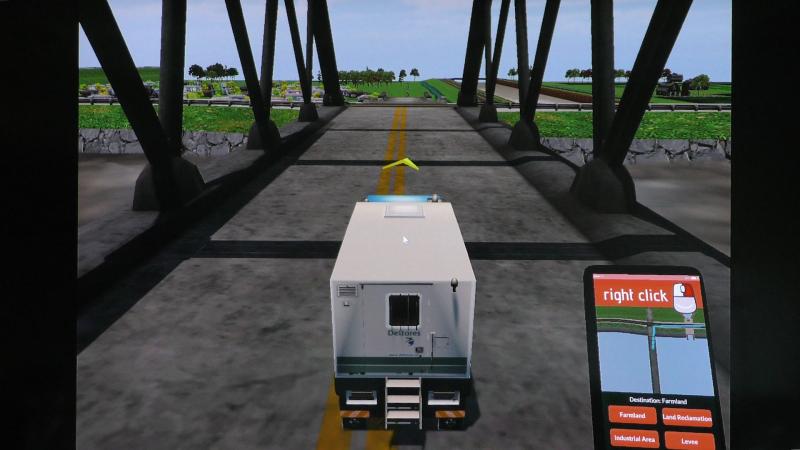Teaching tool has proven successful in the classroom
March 11, 2020

TROY, N.Y. — Without ever leaving the room where they are studying, civil engineering students can now transport themselves into the field where they must take measurements, make observations, and understand the impact of the environment on their designs, and their designs on the environment.
This unique pedagogical approach is being made possible by an immersive mixed reality experience developed through a collaborative effort by researchers at Rensselaer Polytechnic Institute, Northeastern University, and Olin College. Now, with the support of a $2.5 million multi-institution grant from the National Science Foundation, it will be implemented at dozens of universities across the nation.
The Rensselaer team, led by Tarek Abdoun, a chaired professor of civil and environmental engineering, and Victoria Bennett, an assistant professor of civil and environmental engineering, will manage the curriculum development and implementation at more than 20 universities, including Rensselaer.
“It’s something we are very proud of, and we are happy to lead it,” Abdoun said.
“The goal is to improve geotechnical engineering education and build skills that will be relevant to 21st-century engineers,” Bennett said. “We think that some of those things can be learned through the use of mixed reality gaming.”
Named GeoExplorer, the game was originally developed through a collaboration between researchers at Rensselaer and Northeastern, with companies Broad-based Knowledge and Deltares. It is played on the computer and has already been shown to enhance student learning and engagement when incorporated into coursework at Rensselaer.
For example, a student who used the game in class told Abdoun that the company she was interning with could not believe that she had not been out in the field before.
“They were very impressed with the quality and amount of knowledge she had,” Abdoun said. “I couldn’t have gotten her to grasp all those things by explaining it in a lecture.”
Civil engineering requires practical experience, but most students do not have the opportunity to spend a significant amount of time in the field before beginning their careers. GeoExplorer will provide future engineers with the opportunity to design and virtually build structures, then observe how they stand up to hurricane storm surges, pelting rain, and other extreme conditions.
“They are basically in this safe environment, so even if they do something wrong with the design, they will see it collapse and go back to the design and improve on it,” Abdoun said. “There are a lot of engineering skills that depend on practical experience, hands-on. We try to do it in the lab, but not everything you can do in the lab.”
Twenty-five other universities from across the country have signed on to try this approach in their classrooms, which will bring this virtual experience to 6,500 students.
Abdoun and Bennett see the use of immersive simulations and games as a part of the future of higher education, a necessary step to prepare students for what comes next.
“I think that a lot of people are ready to revolutionize their campuses,” Bennett said. “We are trying to provide a tool to work in that direction.”